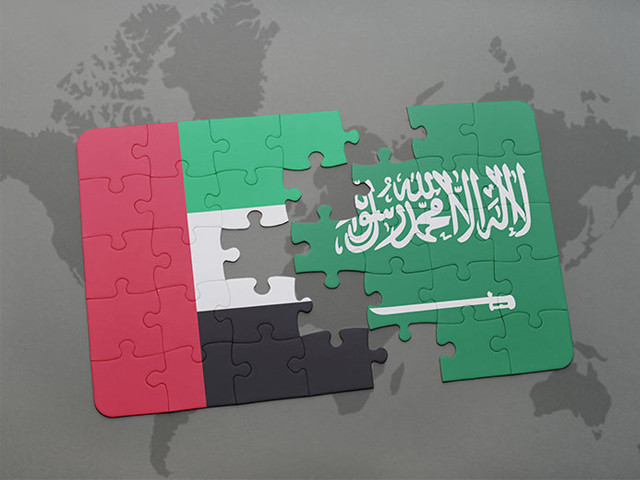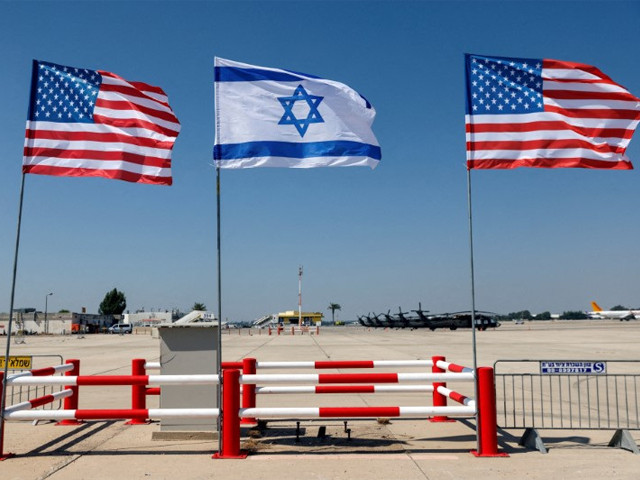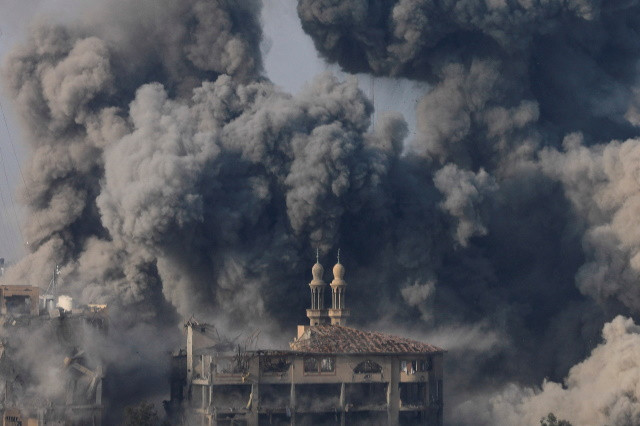
Saudi-Emirati ties: A Gulf symphony
Round and round goes the roller coaster ride, sometimes up and sometimes down. That is how the ties between the Saudis and the Emiratis have been throughout the years. At face value, the ties between the two oil giants seems pretty amicable, yet, like any symphony, it is not all harmonious chords and seamless transitions.
Yes, both states have had their fair share of discordant moments. Challenges arise, and dissonance threatens their rhythm. The origin of this discord lies in territorial disputes and dynastic politics. All this, since the independence of the UAE (United Arab Emirates) in 1971, has been to decide who is more dominant and who has more control in the region. Sheikh Mohammed bin Zayed Al Nahyan (MBZ), the visionary founding father of the UAE, held reservations about Saudi Arabia’s dominant influence over the Arabian Peninsula. In response, then Saudi King Faisal disregarded his Persian Gulf neighbour for an extended period, leveraging this standoff to pursue territorial disputes.
In 2009, the UAE scrapped plans for a unified Gulf central bank after objecting to Riyadh as the proposed location, reflecting deep-seated tensions. Even today, territorial conflicts persist between the two nations, primarily centred around oil-rich territories.
The ascent of both MBZ and Saudi Crown Prince Mohammed bin Salman (MBS) paved the way for strengthened ties between their respective countries. In 2014, when President Sheikh Khalifa bin Zayed, MBZ’s half-brother, suffered a debilitating stroke, MBZ assumed de facto leadership of the UAE at the age of 54. Meanwhile, in 2015, King Salman took the throne in Saudi Arabia, and at the tender age of 29, MBS became a young Saudi prince in need of guidance. Seizing the opportunity, MBZ stepped in as a mentor to the young Saudi leader, forging a closer bond between the two nations.
The fracture in the Saudi Arabia-UAE relations occurred in October last year when the Organisation of the Petroleum Exporting Countries (OPEC) unexpectedly agreed to cut oil output, catching the Biden administration off guard. While the UAE accepted the reduction publicly, it privately conveyed to US officials and the media that Saudi Arabia had coerced them into compliance, as reported by the Wall Street Journal (WSJ).
This incident brought to surface the ongoing tension between the two Gulf nations concerning OPEC policies. Traditionally, Riyadh has wielded significant influence over OPEC decisions as the world’s leading oil exporter. Conversely, the UAE has steadily augmented its oil production capacity to over four million barrels per day, with ambitions to surpass five million. However, under the existing OPEC regulations, the UAE is restricted to pumping approximately three million barrels per day, resulting in substantial losses amounting to hundreds of billions of dollars in revenue.
At the heart of the matter lies the Emirati surge in oil production capacity, granting them the potential to wield significant influence over global oil prices – an authority previously exclusive only to Saudi Arabia. However, this newfound market power has sparked disagreements between the two nations, putting ongoing negotiations to end the Yemeni war at risk. The conflict involves the Saudis, Emiratis, and various Yemeni factions against the Yemeni armed forces.
In December 2022, the UAE inked a security agreement with the Saudi-backed Yemeni presidential leadership council, conferring Abu Dhabi the right to intervene in Yemen and its coastal waters. Saudi officials perceived this move as a direct challenge to their Yemen strategy. In retaliation, Saudi Arabia’s plans to construct an oil pipeline stretching from the Kingdom to the Arabian Sea via Yemen’s Hadramout province were compromised by UAE-backed forces.
As tensions rise between the two influential Gulf nations, the implications extend beyond mere economic matters, jeopardising regional stability and posing obstacles to resolving the protracted Yemeni conflict. However, like all nations, they have disagreements but continue to co-exist; being the case with Saudi Arabia and UAE, is that not the beauty of international relations?
Let’s face it, the Middle East has often been a theatre of strife and division, but amid the chaos, Saudi Arabia and the UAE have emerged as two lead performers, delivering a show that redefines regional diplomacy. Their historical, cultural, and religious bonds serve as a smooth rhythm, providing an unyielding beat that propels their collaboration forward.
In a world grappling with economic uncertainties and energy transitions, Saudi Arabia and UAE refuse to play second fiddle. Instead, they have embraced the challenges while rewriting their score to build economies that transcend black gold. Embracing the winds of change, they’ve invested in tourism, tech hubs, and clean energy ventures.
When it comes to security, Saudi Arabia and UAE perform a duet so profound that it sends shockwaves through the region’s political landscape. They stand shoulder to shoulder, resolving conflicts, and delivering aid where needed most. Yemen’s turmoil? They’re tackling it together. The Qatar blockade? They’ve got a united front. Extremism’s disruptive episode? They drown it out with their shared policies of peace and cooperation.
Critics may raise eyebrows at their opulent lifestyles and sky-piercing ambitions, but the people of Saudi Arabia and UAE are united. These nations take centre stage, leading the Middle East towards a future where prosperity, stability, and innovation are no longer a mirage but a reality within reach.
However, as with any relationship, the Saudi-UAE alliance also faces challenges. Maintaining a balance of power and interests while respecting each other’s sovereignty requires continuous dialogue and compromise. Nevertheless, the ability of both nations to work through these challenges reflects their shared commitment to the greater good of the Gulf and the broader international community.




COMMENTS
Comments are moderated and generally will be posted if they are on-topic and not abusive.
For more information, please see our Comments FAQ